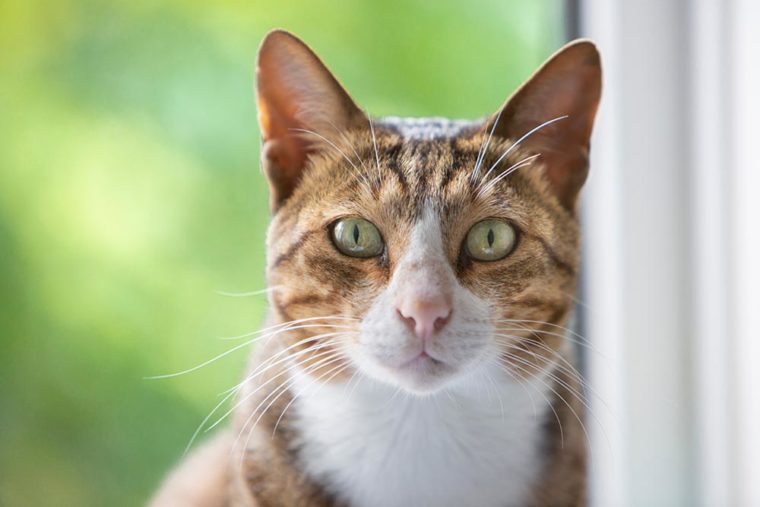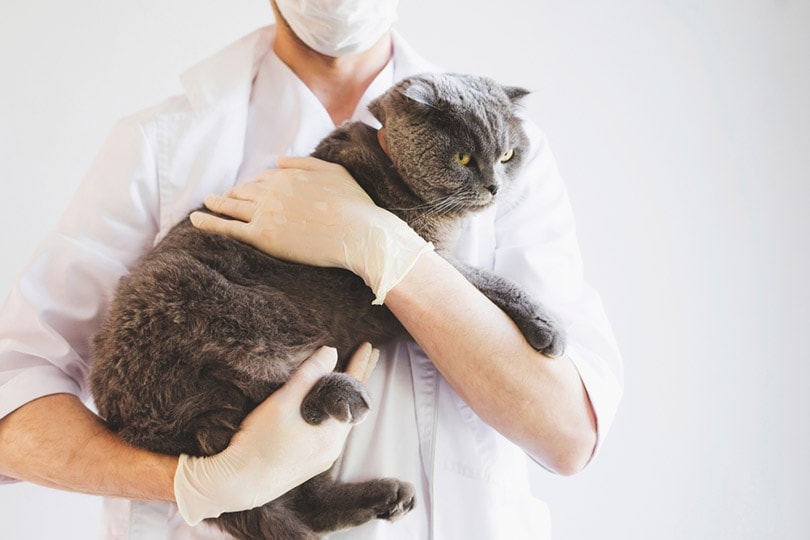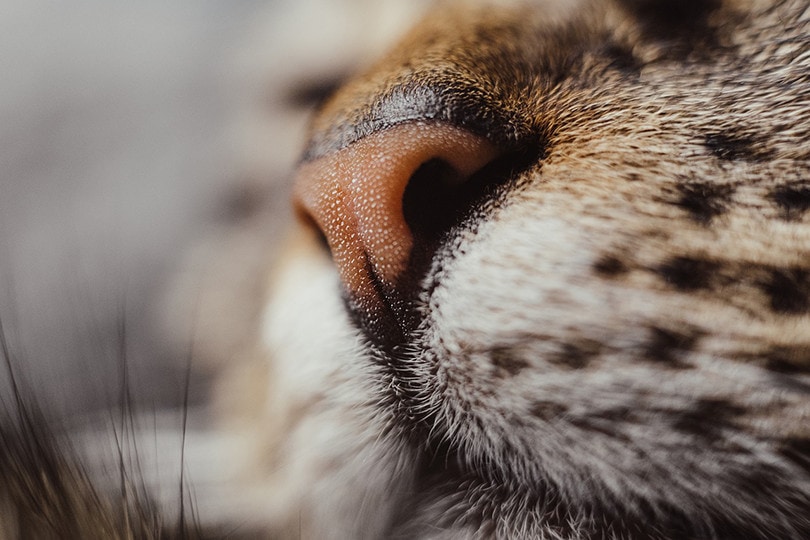
Many pet owners wonder if their pet’s health can be discerned from how wet or dry their nose is. Unfortunately, how wet or dry a cat’s nose is isn’t a reliable indicator of its general health. Still, a nose that’s too wet indicates something is immediately wrong, especially if it’s wet with discharge.
Cats’ noses are usually dry for benign reasons; however, sometimes they can offer insight into your cat’s health. Read on to discover seven possible reasons why your cat’s nose is dry.
The 7 Reasons Your Cat’s Nose is Dry
1. Warm Surroundings
Sometimes your cat’s nose will get physically dried out by warm surroundings. Their immediate environment can cause dryness, such as sitting in front of a fire or a warm place with low humidity.
Even sitting in cupboards with a boiler inside (an airing cupboard) can dry their noses. This dryness and warmness are normal if there are no other symptoms and are usually nothing to worry about.
2. Licking of the Nose
Cats are fastidious self-groomers who will spend a lot of their awake time (from 30% to 50% of their day) grooming themselves. They use their long, barbed tongues, and while they’re effective at capturing dust, dirt, and debris from their coats, they can irritate their noses’ soft skin if they over-lick that area.
If a cat gets food or something sticky on their nose, it will invariably try to lick it off, and this licking can dry your cat’s nose out. But, again, if your cat’s nose is dry but there are no other symptoms, this is usually nothing to worry about.

3. Dehydration
Another possible reason your cat’s nose is dry is dehydration. Cats are descended from a warm-climate cat (the African wildcat) that got most of its water from its food, and they have a few leftover adaptations that allow them to function when moderately dehydrated.
However, this is in no way healthy or recommended for your cat, as cats should be well-hydrated and have access to clean drinking water at all times. One of the signs of dehydration is a dry nose, but more commonly, if your cat is that dehydrated, they’ll have other symptoms first, such as:
You can encourage your cat to drink by:
These are all excellent ways of fending off dehydration and ensuring your cat gets an adequate amount of water and avoids a dry nose.
4. Nose-Specific Health Conditions
Some disorders that can cause a dry or crusty nose are much more likely to occur in certain cat breeds than others, which is sometimes due to genetics and sometimes due to how the breed looks.
For example, Bengal cats are predisposed to developing nose inflammation (ulcerative nasal dermatitis) which can cause dryness and painful sores. Persian cats can develop dryness all over the nose and face due to their skin folds because they are a brachycephalic breed—they have a very short muzzle.
Ulcerative, dry skin conditions, or even fungal infections like ringworm can all cause dryness on the nose. If your cat shows symptoms of an illness or pain, take them to the vet’s office to get checked out.

5. No Tears (Dry Eye)
While it’s slightly more uncommon, a lack of tears can also cause a dry nose and eyes. Tears naturally moisturize the nose, so if your cat develops dry eyes, a dry nose and painful eyes can result. Dry eye can be caused by conditions such as an infection by a virus, surgery to fix eye disorders, or physical deformity.
6. Chronic Discharge
If a cat suffers from discharge from its nose, it can become sore and dry. Upper respiratory infections like cat flu often cause nasal discharge. This excess mucous can cause dryness and crusting of the nose and sometimes even over the nostrils, restricting airflow.
If an upper respiratory tract infection is present, however, there will usually be other signs such as:

7. Sunburn
Getting a sunburn is usually reserved for animals with white fur, but if your cat is white and is out in the sun for too long, their ears and nose (where fur is sparser), they can get sunburnt and even suffer second and third-degree burns if they’re out in the sun for long enough.
Sunburn, when healing, famously dries out and peels, and the same will be true for your cat’s nose. If you think your cat has been sunburned and you can see redness, peeling, or blistering on the nose or ears, take them to a vet for treatment. Apply a cat-friendly sunscreen 15 minutes before you let your cat out into the sunshine to prevent burns and crusting.
Should a Cat’s Nose Always Be Wet?
A cat’s nose will be either wet or dry, depending on what’s normal for them. Usually, cat noses are soft and moist without any signs of excessive discharge, mucus, dry crusting, or inflammation, but very wet noses may occur because your cat has just eaten or drank or has been grooming. Take your cat to the vet if you see a green mucous discharge or anything else that concerns you.

Conclusion
It can be worrisome when your cat suddenly has a dry nose, but usually, there’s nothing to worry about. Some cats have drier noses than others, or they may prefer to sleep next to a fire or radiator to dry out their noses. Some health concerns can result in a cat dry nose, such as dry eye, dehydration, or sunburn, but all of these usually show symptoms other than only a dry nose.
Featured Image Credit: SeraphP, Shutterstock








